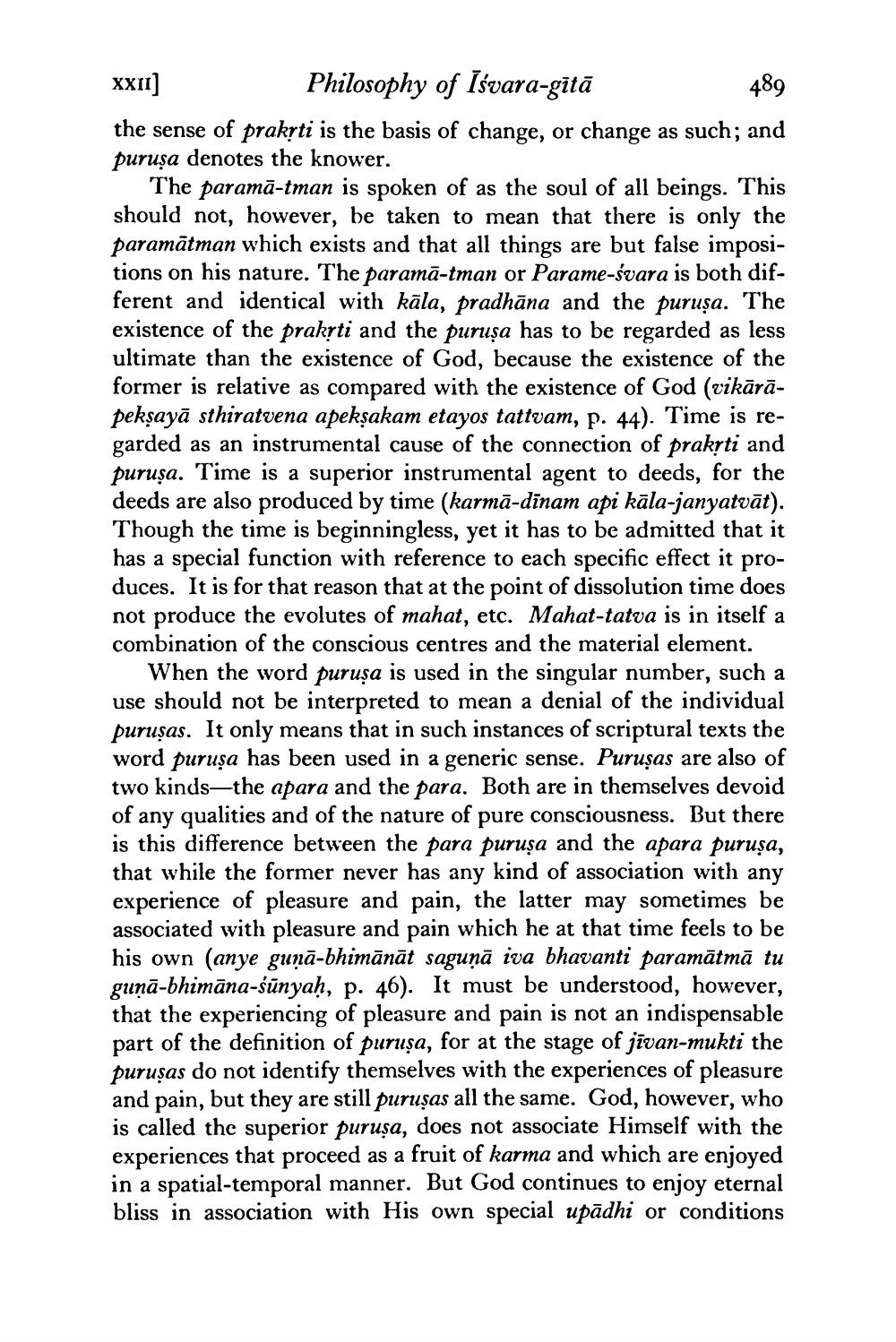________________
XXII Philosophy of Išvara-gītā
489 the sense of prakrti is the basis of change, or change as such; and puruşa denotes the knower.
The paramā-tman is spoken of as the soul of all beings. This should not, however, be taken to mean that there is only the paramātman which exists and that all things are but false impositions on his nature. The paramā-tman or Parame-svara is both different and identical with kāla, pradhāna and the puruṣa. The existence of the prakyti and the puruşa has to be regarded as less ultimate than the existence of God, because the existence of the former is relative as compared with the existence of God (vikārāpekṣayā sthiratvena apeksakam etayos tattvam, p. 44). Time is regarded as an instrumental cause of the connection of prakrti and puruṣa. Time is a superior instrumental agent to deeds, for the deeds are also produced by time (karmā-dīnam api kāla-janyatvāt). Though the time is beginningless, yet it has to be admitted that it has a special function with reference to each specific effect it produces. It is for that reason that at the point of dissolution time does not produce the evolutes of mahat, etc. Mahat-tatva is in itself a combination of the conscious centres and the material element.
When the word purusa is used in the singular number, such a use should not be interpreted to mean a denial of the individual purusas. It only means that in such instances of scriptural texts the word puruşa has been used in a generic sense. Puruşas are also of two kinds—the apara and the para. Both are in themselves devoid of any qualities and of the nature of pure consciousness. But there is this difference between the para purușa and the apara puruşa, that while the former never has any kind of association with any experience of pleasure and pain, the latter may sometimes be associated with pleasure and pain which he at that time feels to be his own (anye gunā-bhimānāt saguņā iva bhavanti paramātmā tu gunā-bhimāna-śūnyaḥ, p. 46). It must be understood, however, that the experiencing of pleasure and pain is not an indispensable part of the definition of puruşa, for at the stage of jīvan-mukti the purusas do not identify themselves with the experiences of pleasure and pain, but they are still purusas all the same. God, however, who is called the superior puruşa, does not associate Himself with the experiences that proceed as a fruit of karma and which are enjoyed in a spatial-temporal manner. But God continues to enjoy eternal bliss in association with His own special upādhi or conditions




